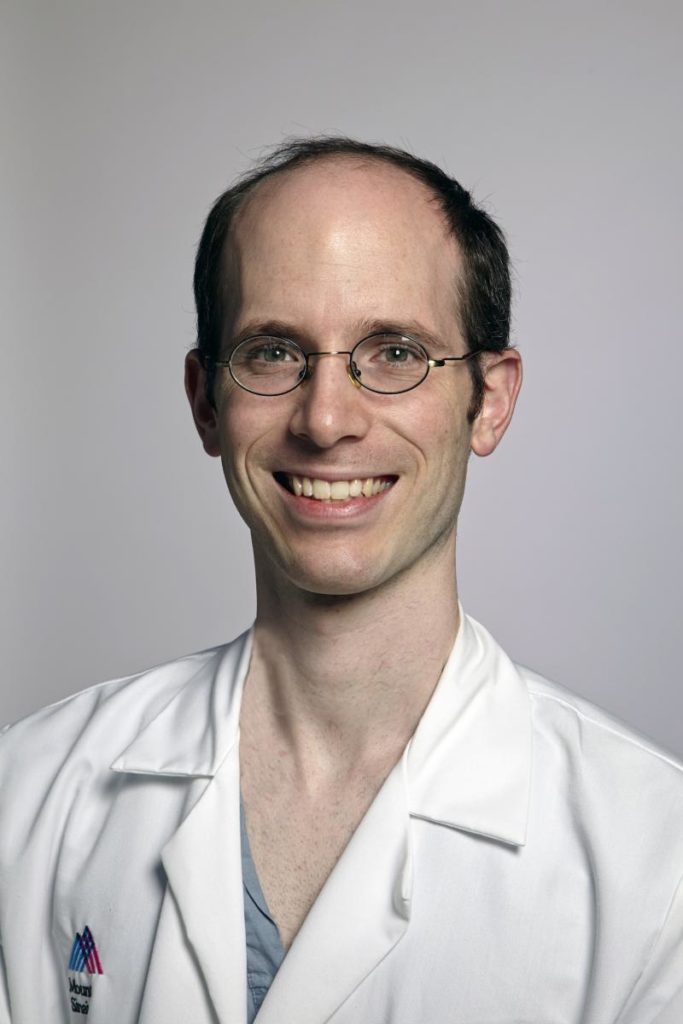Two Georgetown Alumni Among Forbes ‘30 Under 30’ for Health Care

Posted in GUMC Stories | Tagged alumni, School of Medicine, School of Nursing & Health Studies
January 10, 2015 — Two Georgetown University graduates, David Fajgenbaum (NHS’07), MD, MSc, and Eric Oermann (C’07, M’13), MD, have been named to the Forbes “30 Under 30” list in the health care category.
Fajgenbaum received his bachelor of science degree in human science at the School of Nursing & Health Studies, and Oermann received his bachelor of science degree in mathematics at Georgetown College and his medical degree at the School of Medicine at Georgetown University Medical Center. Both Fajgenbaum and Oermann made Forbes’ list of health care entrepreneurs, which is one of 20 categories each featuring 30 standout achievers under 30 years old, and a new spinoff of its list recognizing more traditional young scientists, according to the publication.
The Forbes article states, “The 30 Under 30 in Healthcare focuses on a long list of founders, along with a few economists, policy wonks, and researchers, who are finally dragging our medical system kicking and screaming into the digital age.”
“I join my colleagues Patricia Cloonan, PhD, RN, interim dean of the School of Nursing & Health Studies, and Ray Mitchell, MD, MBA, dean for medical education at the School of Medicine, in congratulating both of these graduates on this impressive accomplishment early on in their careers,” says Howard J. Federoff, MD, PhD, executive vice president for health sciences and executive dean of the School of Medicine at GUMC. “I know that the professors who taught and mentored David and Eric during their time at Georgetown will also applaud this achievement.”
Unraveling a Rare Disease
Fajgenbaum is an adjunct assistant professor at the University of Pennsylvania, where he also is completing his MBA at Wharton. He was recognized for his work to cofound the Castleman Disease Collaborative Network.
Forbes writes, “Fajgenbaum developed multicentric Castleman Disease, a rare disorder of the lymph nodes, during medical school. When chemo failed, he had his last rites read to him. He survived, returned to med school, and published research that changed the way doctors think of the biology of the disease.”
Fajgenbaum says the recognition is “truly a testament to the hard work of dozens of people from around the world fighting to solve this disease and the first-of-its-kind approach that we’re taking to accelerate research.”
Fajgenbaum embraced the Georgetown ethic of men and women for others while still an undergrad. He founded a nonprofit called National Students of AMF, a dual acronym for his mother, Anne Marie Fajgenbaum, as well as “Ailing Mothers and Fathers.” Fajgenbaum’s mother passed away in 2004 from a brain tumor not long after he started at Georgetown.
His undergraduate experience at Georgetown taught him the “importance of dedicating one’s life to helping others,” and “gave me the tools and skills that I’ve needed to be able to change the paradigm for multicentric Castleman disease and build a new model for advancing research for other diseases.”
Personalizing Prognoses

Oermann is a resident physician at Mount Sinai Hospital in New York City. His Forbes citation notes , “Right now, generally speaking, lots of cancer patients get the same amount of radiation. What if an artificial intelligence could personalize this dose, making it more likely there’d be enough to kill the cancer but not too much? That’s one of the problems Oermann, a physician and mathematician, is working on.”
A mathematics major at Georgetown College before continuing on to Georgetown’s School of Medicine, Oermann is focused on developing techniques to predict individual patient survival and to determined individualized therapies for patients with advanced (Stage IV) cancer. He says he and his collaborators seek to use advanced mathematics to answer the crucial question of how long one has to live.
Oermann cites among his major influences having spent six month studying the ethical dimensions of health care under the late Edmund Pellegrino, MD, founding director of the Center for Clinical Bioethics at Georgetown University Medical Center.
“Having the chance to interact with [Dr. Pellegrino] has colored how I approach my clinical work. Medicine was a vocation for him—if you are going into medicine it’s not just something you can do as your day job,” Oermann says.
He hopes his future will continue to meld mathematics and medicine in the form of “personalized prognostics driven by modern computing.”
“It’s about taking all these fancy computer science techniques and health care data to deliver results that are meaningful to patients,” he adds.
By Lauren Wolkoff and Bill Cessato
